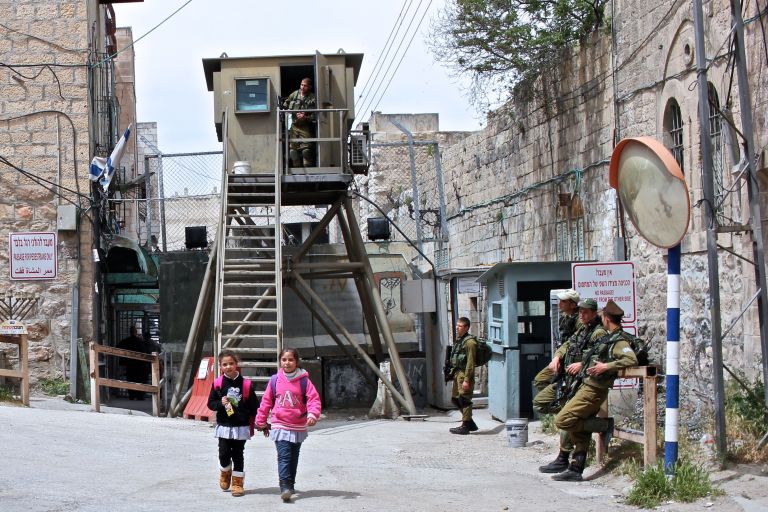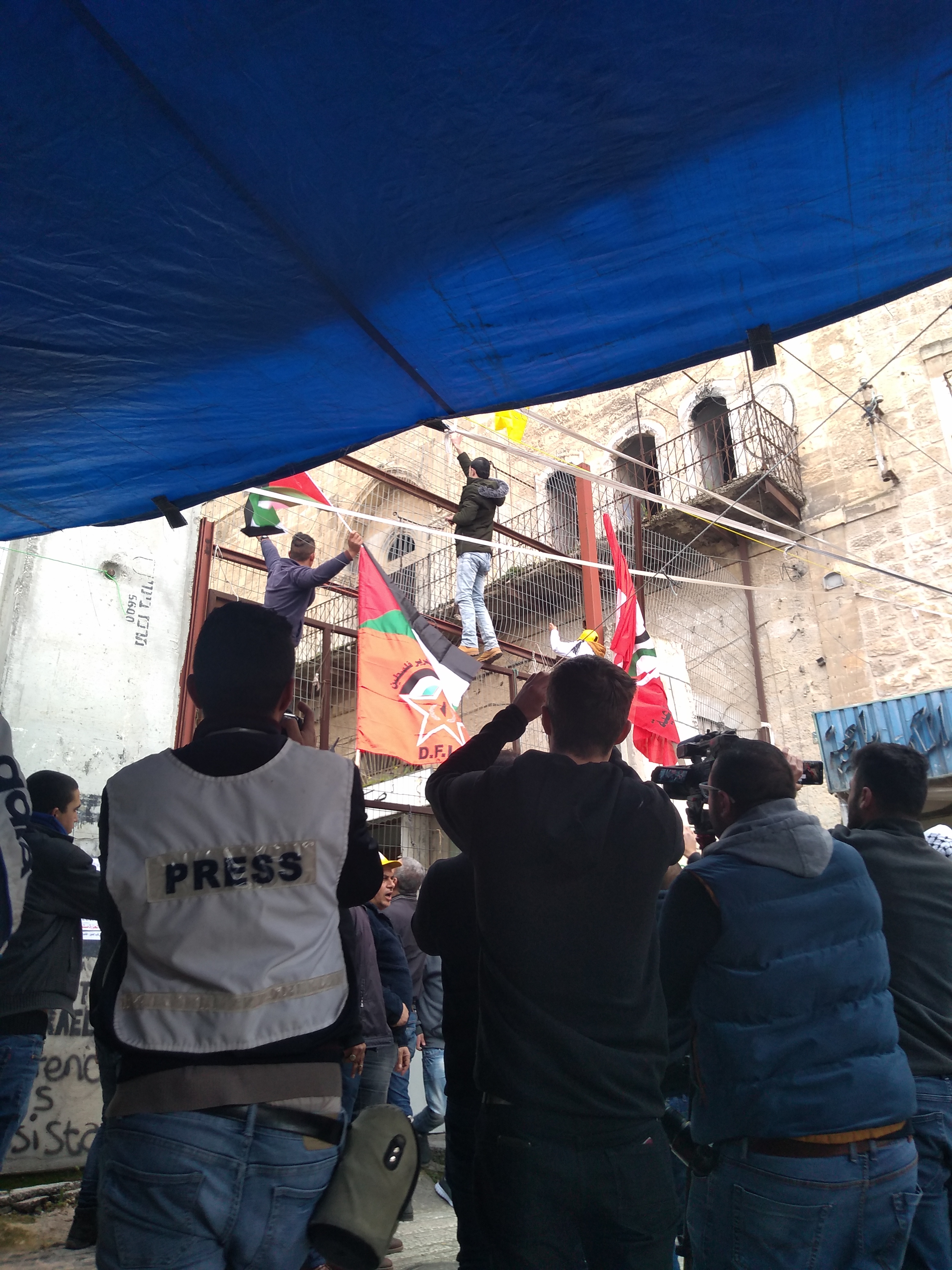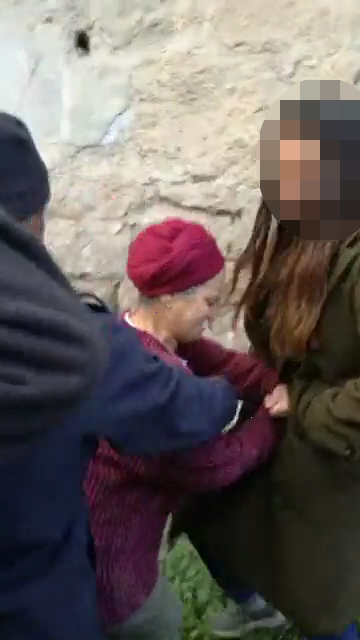Tag: khalil
-
Settlers call the shots in Al-Khalil
February, 2019 | International Solidarity Movement, Al-Khalil team | Ramallah, occupied Palestine Last week, a notoriously violent and antagonistic Israeli settler Ofer, who calls for the extermination of Palestinians, had me arrested and detained by the Israeli police, and if I was Palestinian, I could have been killed. Furthermore, this was another incident demonstrating the…
-
Press targeted during peaceful protest in Al-Khalil
February 22, 2019 | International Solidarity Movement, Al-Khalil team | Al-Khalil, occupied Palestine ISM and members of the press targeted and attacked with teargas and concussion grenades at peaceful protest in Al-Khalil. Peaceful demonstrators gathered at the checkpoint to the closed historical Shuhada street, asking for an increased international presence and for re-entry into Shuhada…
-
Another ISM member attacked by violent Settler, Anat Cohen
February 10, 2019 | International Solidarity Movement, Al-Khalil team | Al-Khalil, occupied Palestine Every day, ISM volunteers monitor the Qurtuba checkpoint in Al-Khalil during mornings and afternoons to ensure the safety of Palestinian schoolchildren. Attacks and harassment by Israeli Defense Forces, police and settlers seem to be increasing. This is the fourth ISM volunteer attacked…



